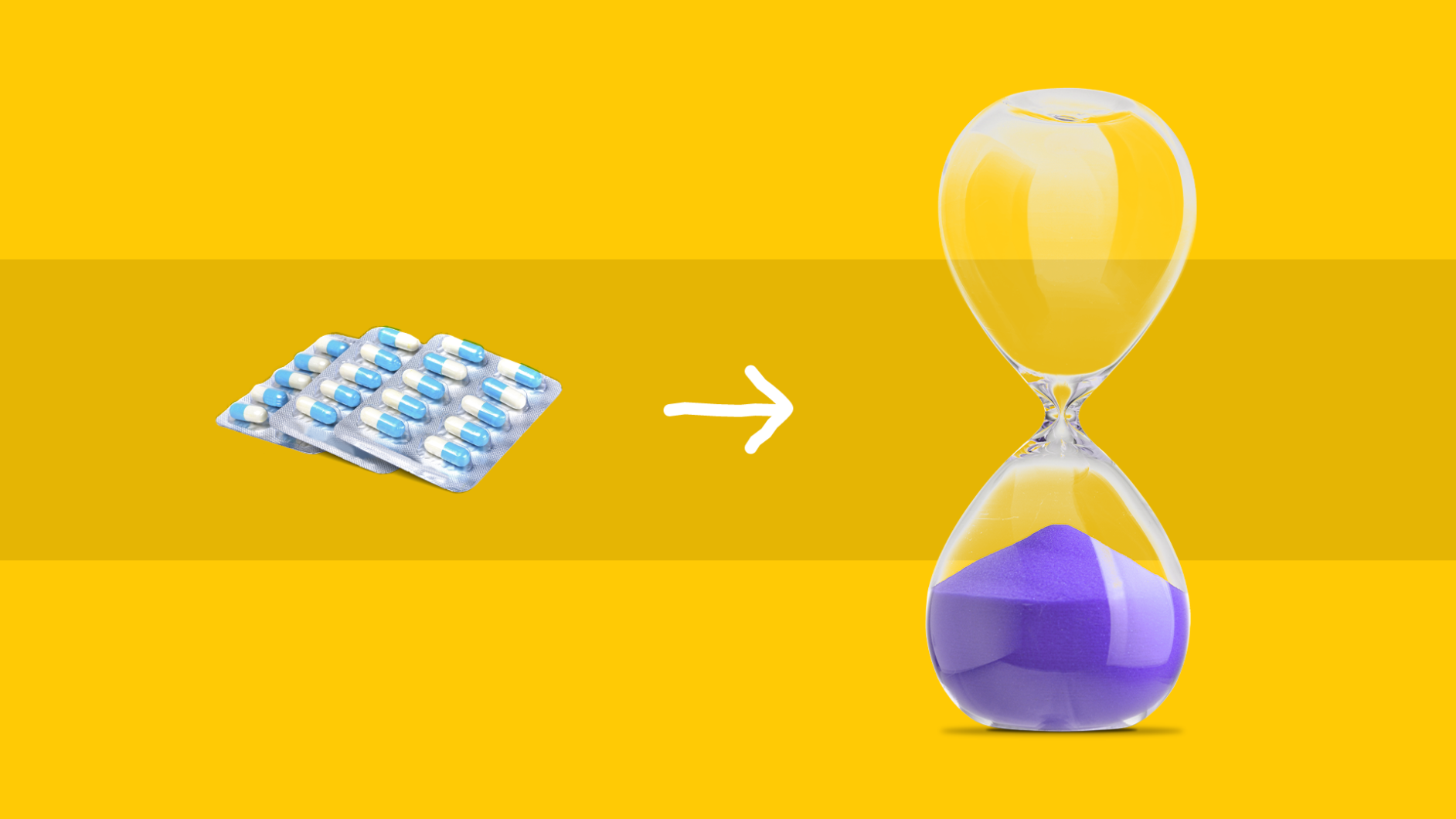If you take a regular dose of Vyvanse, one of the prescription drugs used to treat attention deficit hyperactivity disorder (ADHD) and binge eating disorder, you might worry that the intended effect will dwindle before you’ve crossed everything off your to-do list.
How long does Vyvanse last?
Vyvanse (lisdexamfetamine dimesylate) improves focus for up to 14 hours. Vyvanse is a prodrug—meaning, it enters your body as an inactive medication called lisdexamfetamine. Then, it is metabolized into the active medication dextroamphetamine. Vyvanse half-life has two parts: lisdexamfetamine has a half life of less than one hour. Dextroamphetamine has a half-life of 12 hours, which means it can stay in your system for up to 2.5 days. However, how long it’s effective and how quickly it’s eliminated varies from person to person.
Many wonder how to make it last even longer, or intensify the effects of Vyvanse. “No ADHD medication lasts as long as we would like,” said Daniel Lieberman, MD, professor of psychiatry and behavioral sciences at the George Washington University School of Medicine and Health Sciences. “It typically lasts 8-10 hours, but we don’t live in a 9-to-5 world. Patients may need to get 12 or more hours out of a stimulant.”
RELATED: What are central nervous system stimulants?
How to make Vyvanse last longer
An online search for “how to make Vyvanse last longer” will bring up countless ways to potentially increase the duration of the drug’s effects. Is there any truth behind these claims? Not really.
While some people say that combining magnesium and Vyvanse, avoiding dairy and coffee, taking ginkgo pills and eating large meals make Vyvanse last longer, there’s no proof that these strategies actually work, said Lieberman.
However, there are a few things that might influence the drug performance or how you perceive its effects:
- Protein: “It has the potential to boost the same brain chemicals that Vyvanse is boosting. The protein won’t have an effect on the drug, but it augments the effects of the medication,” says Dr. Lieberman.
- Exercise: “A lot of people with ADHD also have depression at the same time, and both conditions may make it difficult to focus and concentrate. Exercise may help with those symptoms,” says Dr. Lieberman.
- Vitamin C: “Orange juice and other things with vitamin C might have the potential to slow down the body’s ability to convert Vyvanse into active amphetamine. It may make it last longer, but the overall effect will be less—it’s like eating a bag of popcorn more slowly,” says Dr. Lieberman.
He added that drinking a lot of grapefruit juice is a very bad idea. “Grapefruit juice can slow down the rate at which the body gets rid of drugs, which can be dangerous,” he explained. It’s important to note, a lot of patients taking ADHD medication are also taking other psychiatric meds to treat related medical conditions like depression and anxiety. Many of these prescriptions, such as SSRIs, tricyclic antidepressants, and monoamine oxidase inhibitors (MAOIs), can have a dangerous drug-drug interaction with Vyvanse that’s similar to the interaction with grapefruit juice.
RELATED: Common side effects of Vyvanse
How to increase Vyvanse effectiveness
When you first start taking Vyvanse, you might experience a boost in energy, motivation and positivity. However, these effects don’t typically last, says Dr. Lieberman.
“If you’re finding the increased energy is wearing off, tough luck—that’s not what the drug’s supposed to do,”Dr. Lieberman says. “Vyvanse is supposed to improve focus, concentration and impulse control. When you focus on those three things, people find it lasts longer than they thought.”
Rather than looking for ways to make Vyvanse last longer, here are some tips on having the best experience on the medication, to make Vyvanse work better for you:
- Find the right dose: Vyvanse offers two different forms (Vyvanse capsules and chewable tablets) and seven different capsule strengths, ranging from 10 mg to 70 mg. The typical starting dose is 30 mg, and dosages are increased in 10 mg to 20 mg increments after monitoring response. Work with your doctor to measure the drug’s effect on your focus, concentration and impulse control to find the right Vyvanse dose, says Dr. Lieberman.
- Ask for feedback: Not sure if your Vyvanse is working? Ask your significant other or coworkers if they see improvements in your focus as you try different strengths. “Third-party feedback will help us decide if a higher dose is doing something,” says Dr. Lieberman.
- Break bad habits: “People with ADHD often develop some bad habits, like running late or losing things. Psychiatric drugs make it easier to break those habits, but it will still take work,” Dr. Lieberman says. Try working with a mental health professional to make behavioral changes (like using calendars and removing distractions from your workspace) to complement the effects of the drug for better control over symptoms of ADHD.
RELATED: ADHD treatment and medications
If you’re finding that Vyvanse isn’t working well, or lasting as long as you’d like, talk to your healthcare provider for medical advice. There are many different stimulant medications, like Adderall, Adderall XR, Ritalin, and Concerta, that are very effective in the treatment of ADHD when you find the right dosage. Using or adding immediate-release formulations in your regimen may help provide more optimal symptom control.
A note on Vyvanse misuse
Vyvanse is considered a schedule II controlled substance, which means it has a high potential for drug abuse. One study found that 17% of college students admitted to using ADHD stimulants like Vyvanse as study aids and recreational drugs. Physical signs of Vyvanse abuse include dry mouth, trouble sleeping, dizziness, rapid heart rate, sweating, changes in sex drive, GI problems, and loss of appetite or weight loss. Psychological symptoms of Vyvanse abuse include mood swings, anxiety, aggression, and even hallucinations. Call SAMHSA’s national Helpline at 1-800-662-HELP (4357) for drug addiction help and resources.











